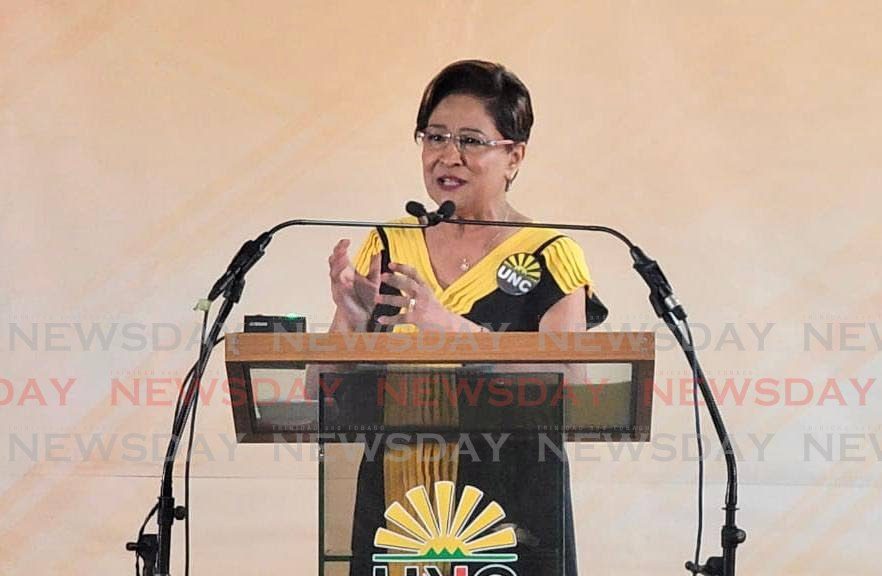Criminologist: UNC, civil society crime talk results unclear

THE Opposition UNC's anti-crime town hall meetings and a civil society crime summit organised by the People's Roundtable, may or may not prove helpful to curbing crime.
Criminologist Darius Figuera expressed this opinion on Sunday.
On Saturday, Opposition Leader Kamla Persad-Bissessar announced the party's first anti-crime town hall meeting will take place from 6 pm at the La Joya Complex, St Joseph on Monday.
Former police commissioner Gary Griffith will be one of the speakers at the meeting.
Last December, Persad-Bissessar said the party would be holding these meetings after it was unable to reach an agreement with the Government about holding bipartisan anti-crime talks.
The People's Roundtable was supposed to hold a civil society crime summit at the Cipriani Labour College, Valsayn on January 9. But the group's convenor, Movement for Social Justice (MSJ) leader David Abdulah said the summit was postponed due to the state funeral service for former prime minister Basdeo Panday on that day.
The summit takes place at the same venue on January 31.
Both the UNC and People's Roundtable events have the compilation of crime plans as their respective outcomes.
But with the Government being involved in neither event and the only entity capable of implementing these plans, the purpose of both events is vague.
Figuera said, "The primary issue is the efficacy of the solutions that emerge from the two initiatives of the UNC and the civil society group."
For years , he continued, "governments regardless of political party in power, have shown a morbid inability to articulate operational reality on the ground that is driving the evolution of criminality in TT."
Figuera said as a result of this, the solutions applied have all failed to arrest the evolution of criminality in TT especially in the 21st century. T
"The specific realities that have constituted the rivers of blood from 2017 to present must then be articulated and solutions derived from this knowledge."
He said there must also be "an acceptance and understanding of the crisis of applicability and impact of the national security apparatus must inform the critically necessary programs of reform, reformulation and revisioning of the national security apparatus now demanded as a matter of urgency."
Figuera added that if the UNC's meetings and the People's Roundtable crime summit can address these issues, the society could benefit and it could intensify the demand for efficacious action by Government to play its part "in dealing with the tsunami of violence plaguing the social order today."
But both initiatives will be useless if they only present the same old ideas that have failed in the past.
In this scenario, Figuera said, "The quagmire deepens at the level of the idea as effective action is stymied, intensifying the social crisis."
In an October 12 letter, the Prime Minister wrote to Persad-Bissessar about scheduling bipartisan crime talks immediately after the budget debate in Parliament.
Dr Rowley proposed several pieces of anti-crime legislation for discussion.
Attorney General Reginald Armour, SC, was nominated as the leader of the Government's team to the talks.
Minister in the Office of the Prime Minister Stuart Young, National Security Minister Fitzgerald Hinds, Housing Minister Camille Robinson-Regis, Public Utilities Minister Marvin Gonzales and Tourism, Culture and the Arts Minister Randall Mitchell are the other members.
On November 3, Armour wrote to Persad-Bissessar asking she nominate her team for the talks.
Persad-Bissessar criticised Rowley for not attending the talks and no UNC team was nominated.
Rowley subsequently criticised the UNC for seeking to score political points and not being serious about addressing crime.
Last November, when he announced the staging of the crime summit, Abdulah criticised the Government and the Opposition for failing to agree on a bipartisan approach to dealing with crime.
Both sides were similarly criticised by Figuera and another criminologist Prof Ramesh Deosaran.


Comments
"Criminologist: UNC, civil society crime talk results unclear"